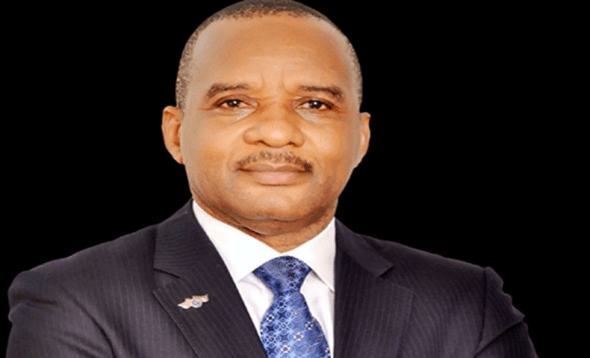
The Nigeria Maritime Administration and Safety Agency (NIMASA) has invested over N150billion to end the War Risk Insurance on Nigeria-bound cargoes.
The cost of the contract awarded by NIMASA for Deep Blue Project, according to the agency, was $195 million.
War risk insurance, covers damage due to acts of war, including invasion, insurrection, rebellion and hijacking. Some policies also cover damage due to weapons of mass destruction. It is used in the shipping and aviation industries.
It has two components: War Risk Liability, which covers people and items inside the craft and is calculated based on the indemnity amount; and War Risk Hull, which covers the craft itself and is calculated based on the value of the craft.
The premium varies based on the expected stability of the countries to which the vessel will travel, the war risk phenomenon, which was only known to countries with high rate of piracy such as Somalia, also found its way into Nigeria following massive involvement of youths in militancy in the Niger Delta.
According to the Oceans Beyond Piracy’s 2020 report, the total cost of war risk area premiums incurred by Nigeria-bound ships transiting the Gulf was $55.5 million in 2020 alone, and 35 per cent of ships transiting the area also carried additional kidnap and ransom insurance totalling $100.7 million.
The measure taken by the apex maritime agency has led to the drastic fall in piracy incidence in the waters and the Gulf of Guinea in the last two-quarters which operators said, calls for celebration.
NIMASA was able to achieve this, based on its deployment of the Integrated National Security and Waterways Protection Infrastructure, popularly known as the Deep Blue Project by the Director-General of the apex maritime regulatory agency, Dr Bashir Jamoh.
Speaking with reporters on the sidelines of the just-concluded fifth plenary of the Gulf of Guinea (GoG) Maritime Collaboration Forum (MCF) in Abuja, an elated Jamoh expressed happiness over the removal of the War Risk Insurance on the cargoes, calling on Nigerians and the international community to continue to support the agency in its drive to make the nation’s territorial waters and the Gulf of Guinea safe for shipping and maritime business.
Jamoh said “the achievements recorded in maritime safety were based on the huge amount invested by the Federal Government through the agency on maritime architecture and the partnership between NIMASA, the Nigerian Navy and other regional bodies.
No one can easily forget the frequent reports of attacks on ships and the kidnapping of seafarers in the Gulf of Guinea in 2019 and 2020 when they reached their peak and the attendant negative economic effects on the sea-borne trade in the region.
Today, the IMB has not only affirmed that piracy is at a 28-year all-time lowest in the region, Nigeria, which once seemed the worst culprit has been taken off its Red List even as we celebrate almost two-quarters of zero attacks in 2022.
While it is important to recognise success so far made, the future must however be the focus,” Jamoh added
Before NIMASA invested the huge amount, a senior official of the Federal Ministry of Transportation (FMoT) said: “Insecurity got so bad in the region before the deployment of the deep blue project that global insurance firm Beazley offered “Gulf of Guinea Piracy Plus,” a bespoke insurance plan for maritime crew travelling through the area.
The plan, according to a senior official of the ministry, “provides compensation for illegal vessel seizures and crew kidnappings even in the absence of ransom demands. It tracks insured vessels on a 24-hour basis, but because the risks are so high, it limits claims to $25 million’’.
For further information Contact Us

